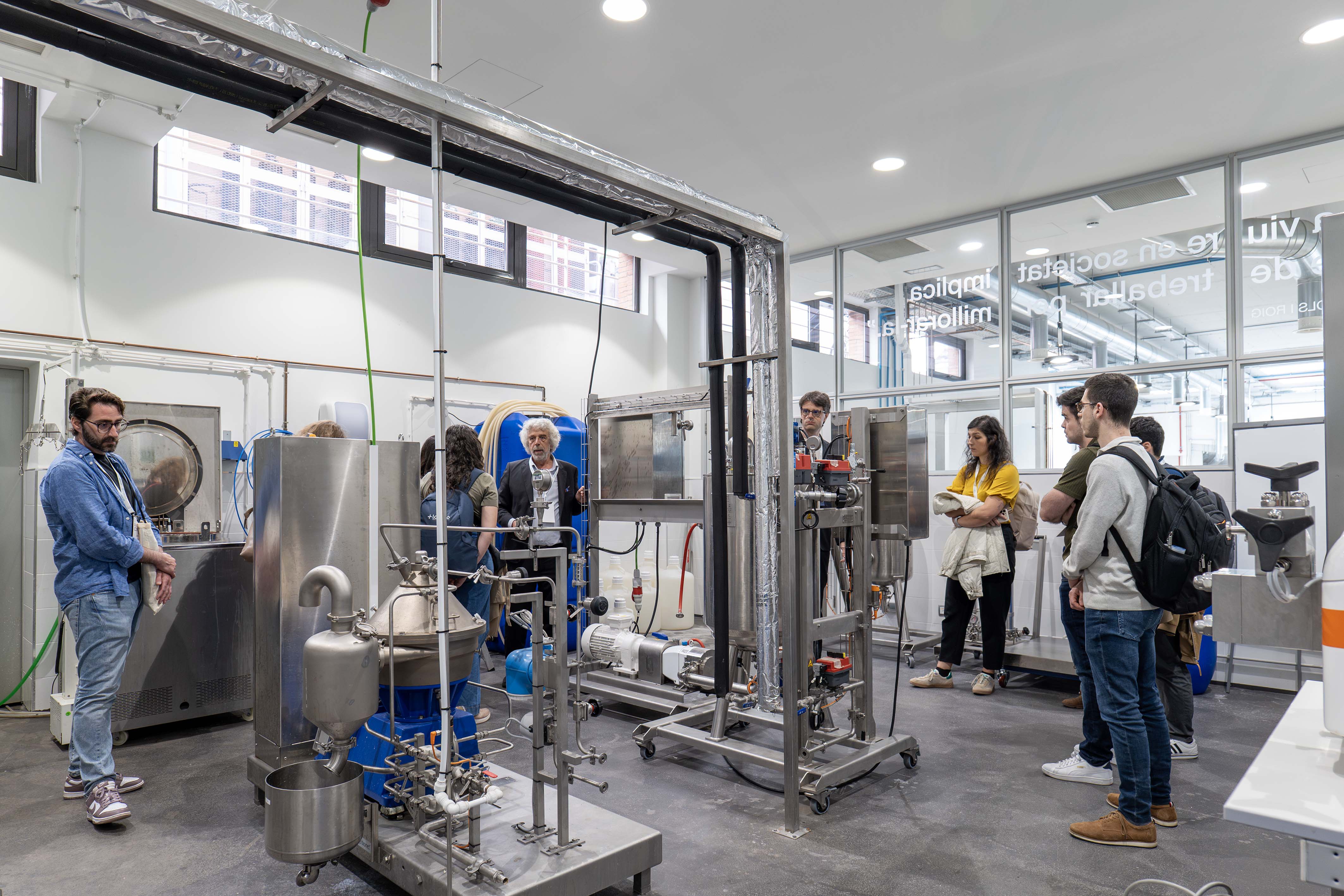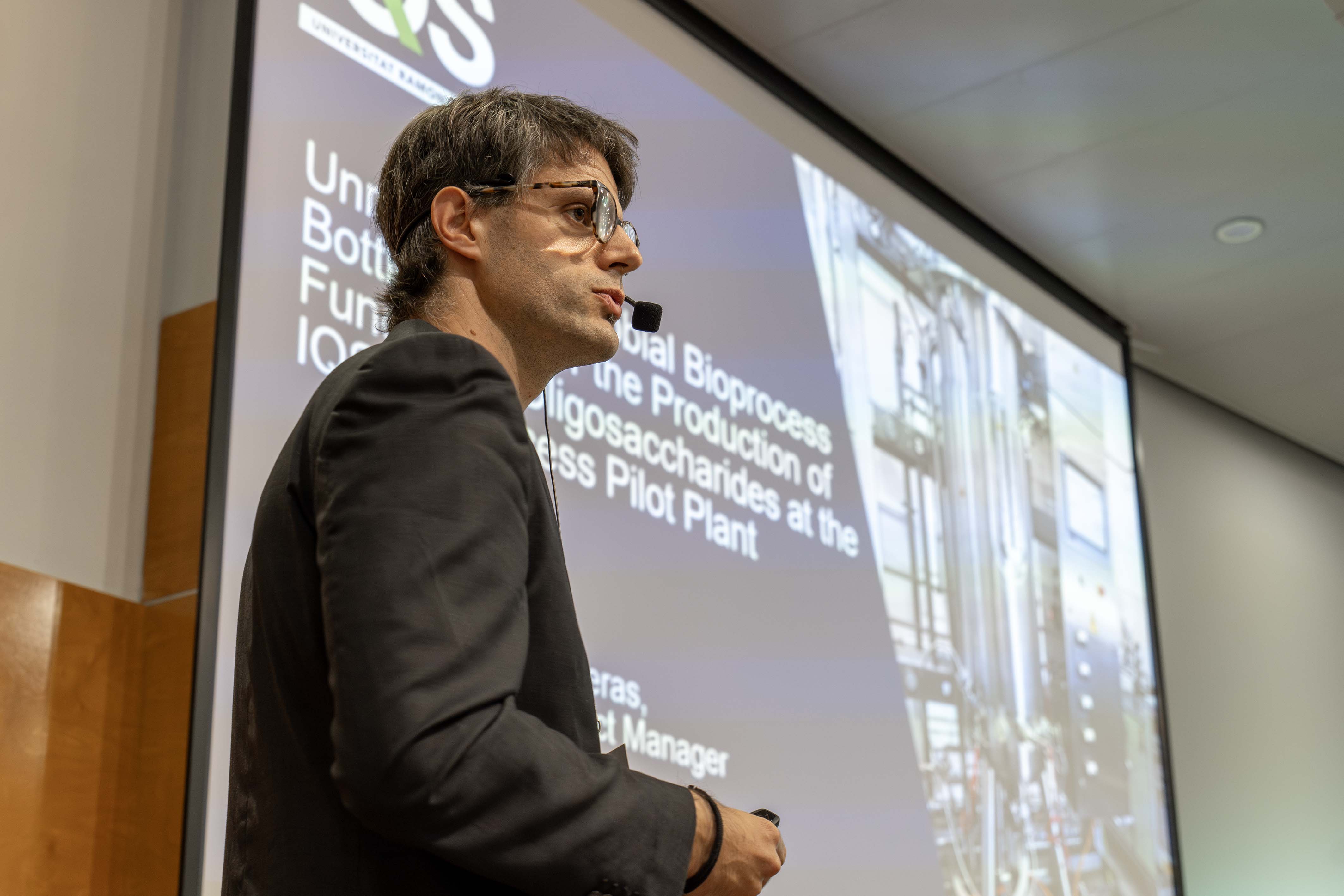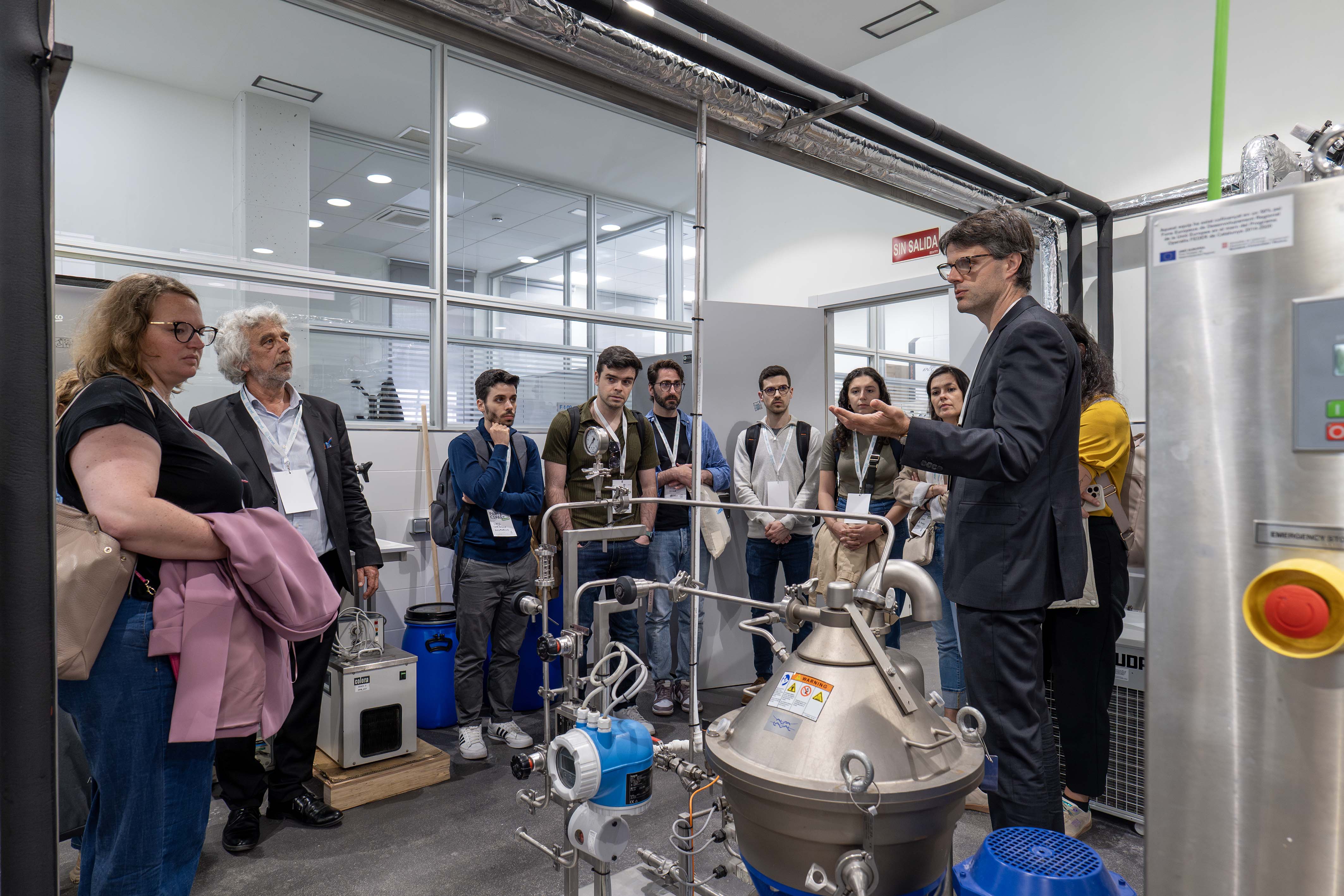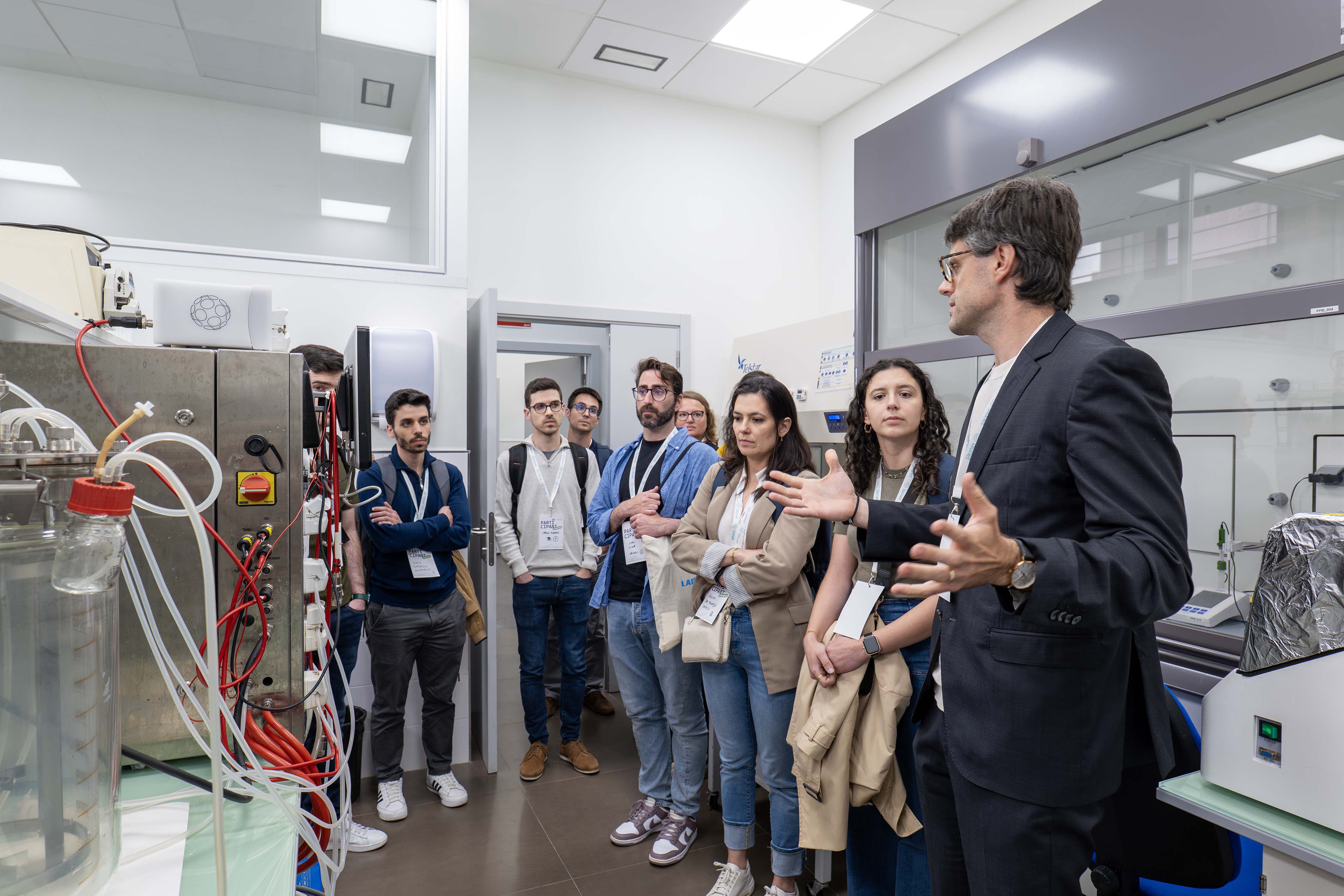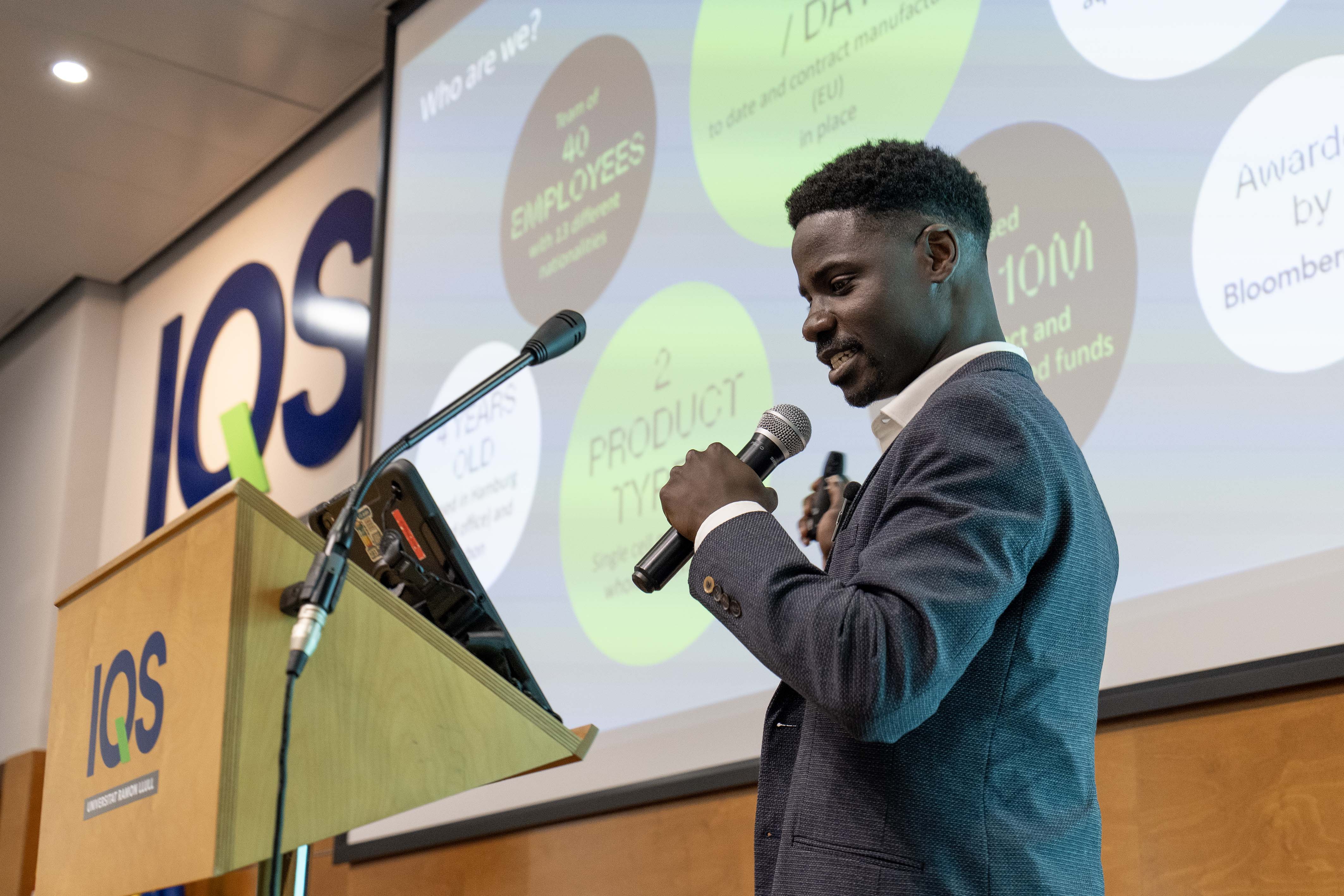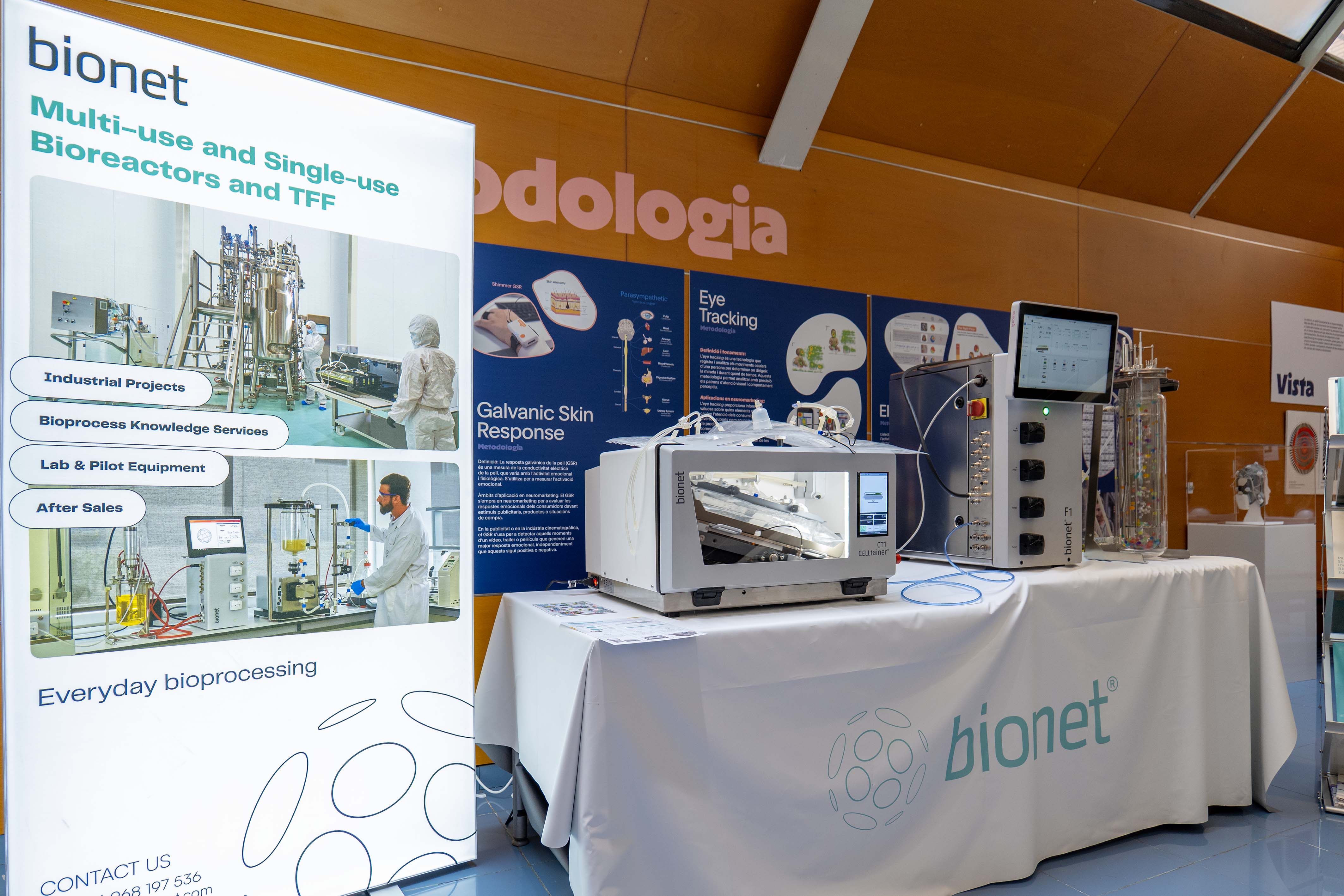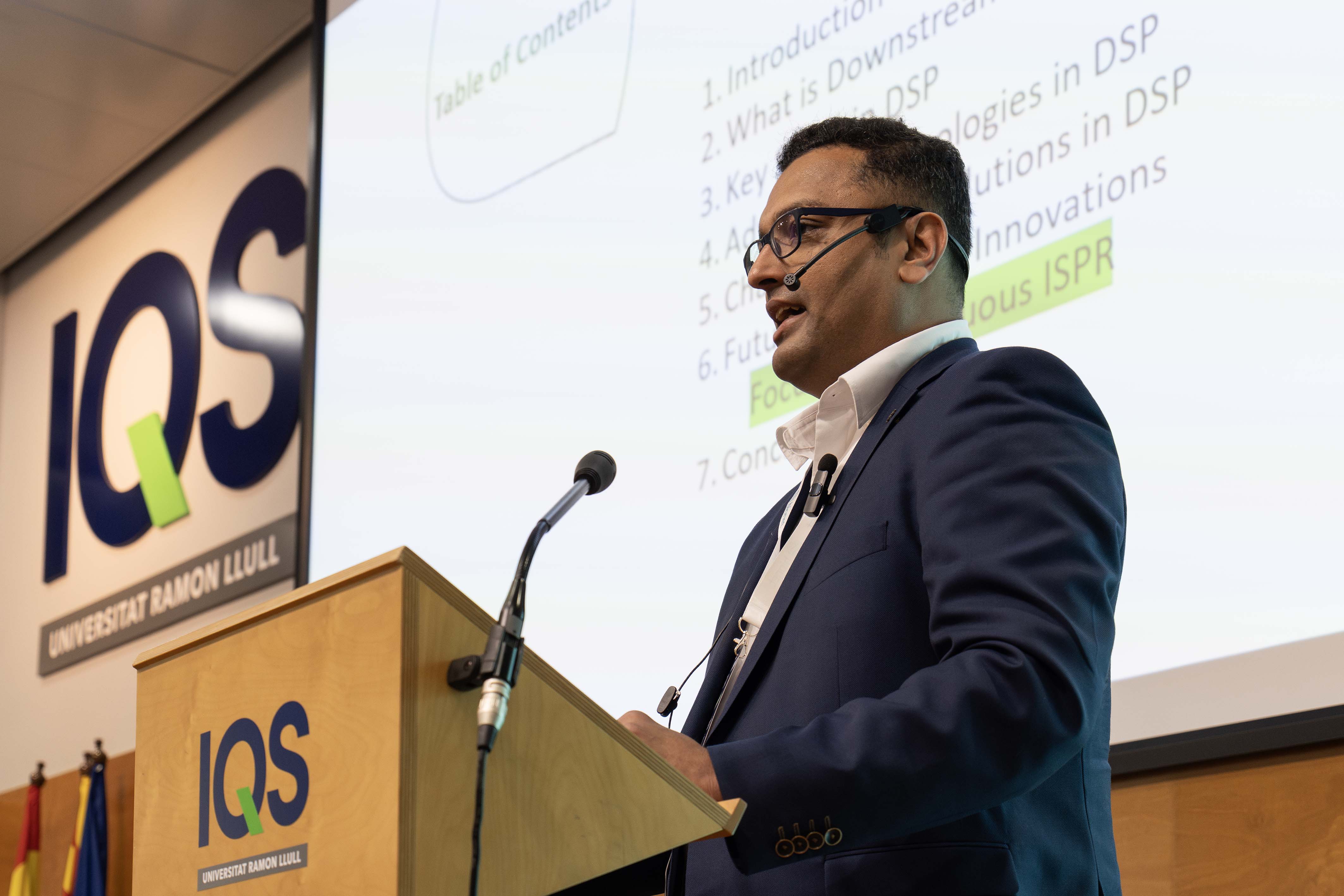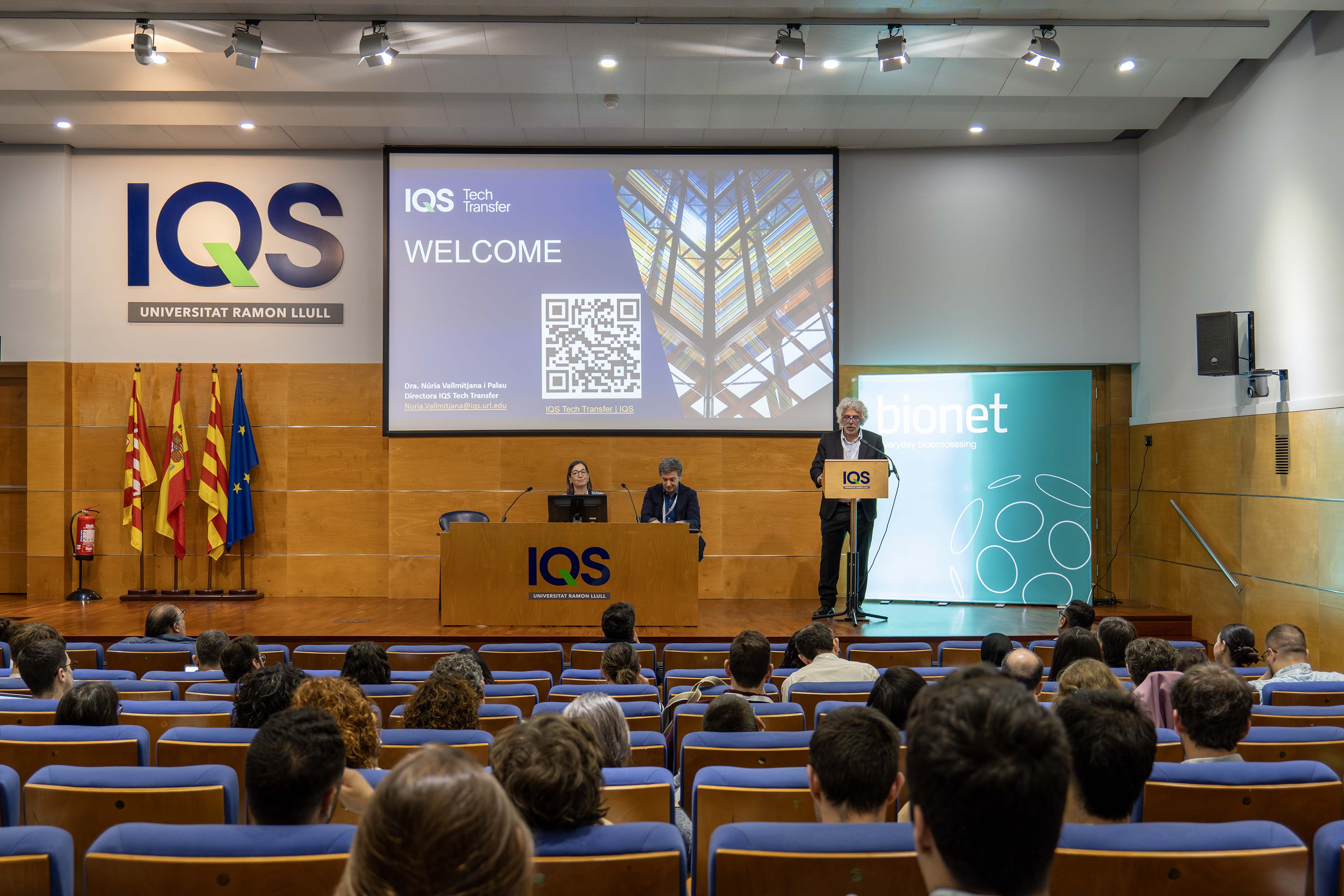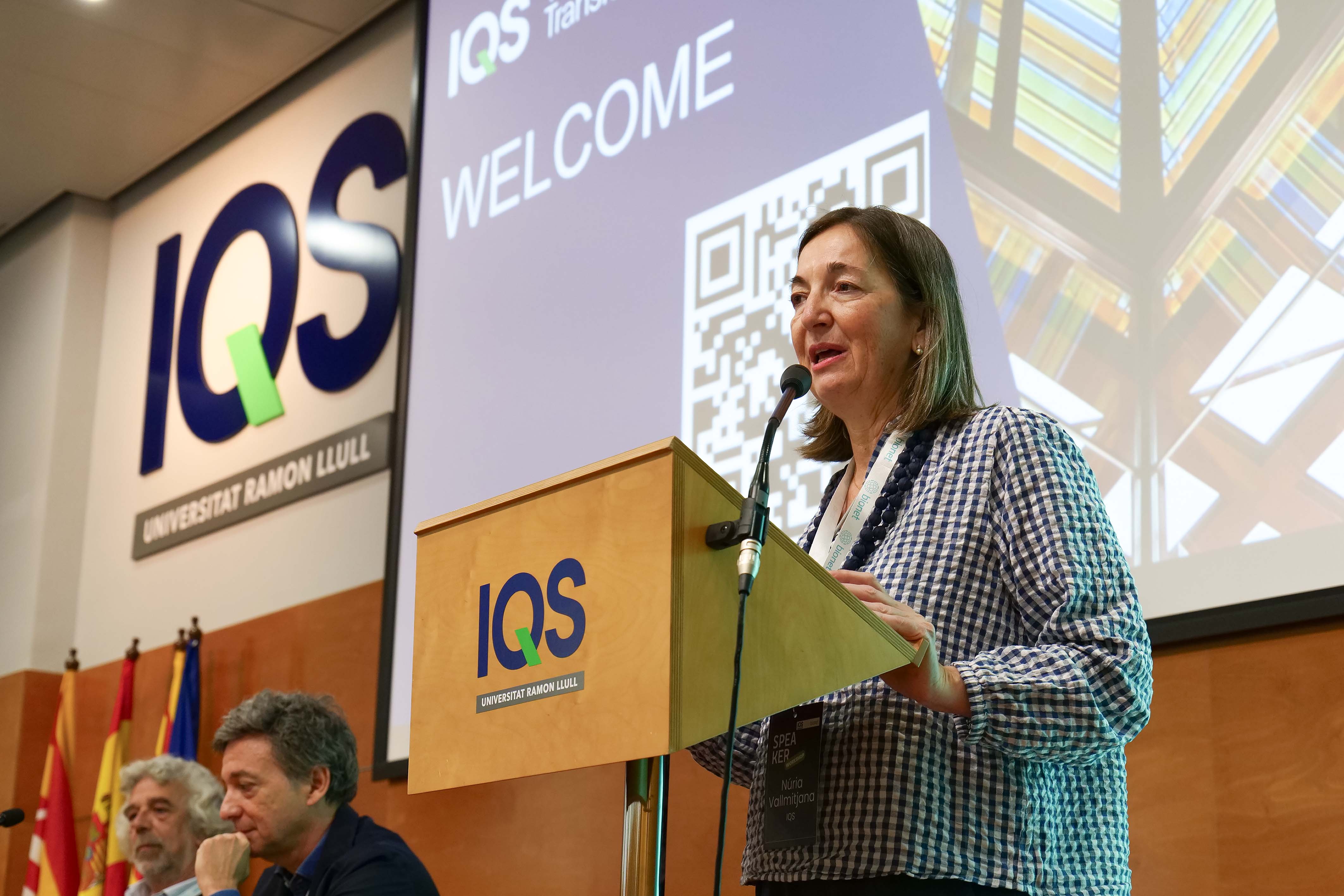This past May, IQS hosted the second Industrial Biotechnological Processes workshop co-organized by the IQS Tech Transfer division and the company Bionet. Under the title Bioprocess Intensification in Industrial Biotechnology, the conference welcomed more than 120 attendees from companies and universities.
As indicated by Dr Núria Vallmitjana, Director of IQS Tech Transfer, and Mr Ricardo Egea, CEO of Bionet, the objective of the event was to offer attendees a sample of future challenges and innovative projects in the field of bioprocesses, led by international expert speakers. Mr Egea also thanked IQS for hosting the conference and stressed that “it is another example of the close and prolonged cooperation we have with IQS, the result of our mutual curiosity to understand bioprocesses in depth, go much further, and grow as a society in a healthy and safe way.”
A sample from the Bio Base Europe Pilot Plant
Dr Antoni Planas, coordinator of the IQS Biochemistry Laboratory, presented the first speaker of the day, Dr Rakesh Nair, Business Development Manager at the Bio Base Europe Pilot Plant in Ghent (Belgium), a benchmark in the European biotechnology industry equipped with 57 fermenters. In the inaugural conference, Advancing Bioprocess Intensification: Optimizing Downstream Processing for Efficiency and Scalability, Dr Nair stressed that “we need to have bioprocess pilot plants in order to reduce associated technological risks and be able to better cross the ‘Death Valley’ of new processes economically and more safely.” Dr Nair’s presentation focused on the optimization of downstream purifications using new advanced technologies such as continuous bioprocesses, advanced models and simulations, and incorporating Machine Learning and AI tools to improve the essential points of processes such as cell disruption, eliminating insolubles, and isolation and purification techniques to achieve a good final product.
Success stories in industrial bioprocesses
The next presentation, In-Line Chromatography Buffer Preparation for Process and Cost Optimization, was given by Dr Jordi Gibert Amat, Head of Klinea’s Biotechnology Unit, who presented the advantages of having in-line buffer preparation and conditioning systems at the point of use to save time, space, and avoid using large volumes of water in protein chromatography systems.
Michael Sebakka, with the German company MicroHarvest, shared his experience in using micro-cultures to obtain better proteins using natural microorganisms, explaining his experience in his speech about the full path – from the laboratory to the pilot plant – in 24 months.
Simo Ellilä, CEO and co-founder of the Finnish company Enifer, presented the challenge of covering the increase in demand for proteins in the coming years, the search for alternatives, and the opportunity to use mycoproteins, such as those derived from PEKILO® protein, a new ingredient for animal feed, in the approval process.
The importance of using high-quality seeds in microbial sowing and all the operations related to this step of bioprocesses was the focus of the HQ Microbial Seeding with Cost Efficiency Using 2D Rocking Single-Use Technology talkby Tutku Kurt, Senior Bioprocess Specialist at Bionet, who presented the new generation of Celltainer® single-use bioreactor, as well as the advantages that its use represents over traditional stainless steel bioreactors.
Dr Xavier García Ortega, with the ENG4BIO group at the Autonomous University of Barcelona, spoke in his lecture Exploiting Off-Gas Analysis Based Real-Time Monitoring for Understanding and Optimizing Microbial Fermentation Processes about the numerous advantages of using Pichia pastoris as a microbial cell factory in many bioprocesses along with the improvements achieved through Continued Verification Process (CPV) tools.
The final two lectures were given by Dr Marc Carnicer, with the Biological Chemistry and Biotechnology Group (GQBB) at IQS, and Dr Ruth Odoñez from Bionet. Dr Carnicer, Project Manager of the IQS Bioprocess Pilot Plant, presented a case study carried out at IQS to produce a family of oligosaccharides with immunostimulatory activity with applications for crop protection.
Finally, Dr Ordoñez, Senior Bioprocess Specialist at Bionet, gave her presentation Integrated Micro and Ultra Tangential Flow Filtration for Downstream Process Intensification concerning the versatility of TFF technology as a key tool for the intensification of downstream processes.
Visit to the Bioprocess Pilot Plant
The workshop ended with a visit to the IQS Bioprocess Pilot Plant, where attendees were able to see the infrastructure and equipment that IQS boasts for the development, optimization, and scaling of bioprocesses, such as the 10 and 144L bioreactors and the tangential ultrafiltration system.
Attendees were also able to attend a demonstration of the ROSITA 2.0 software led by Bionet experts.










